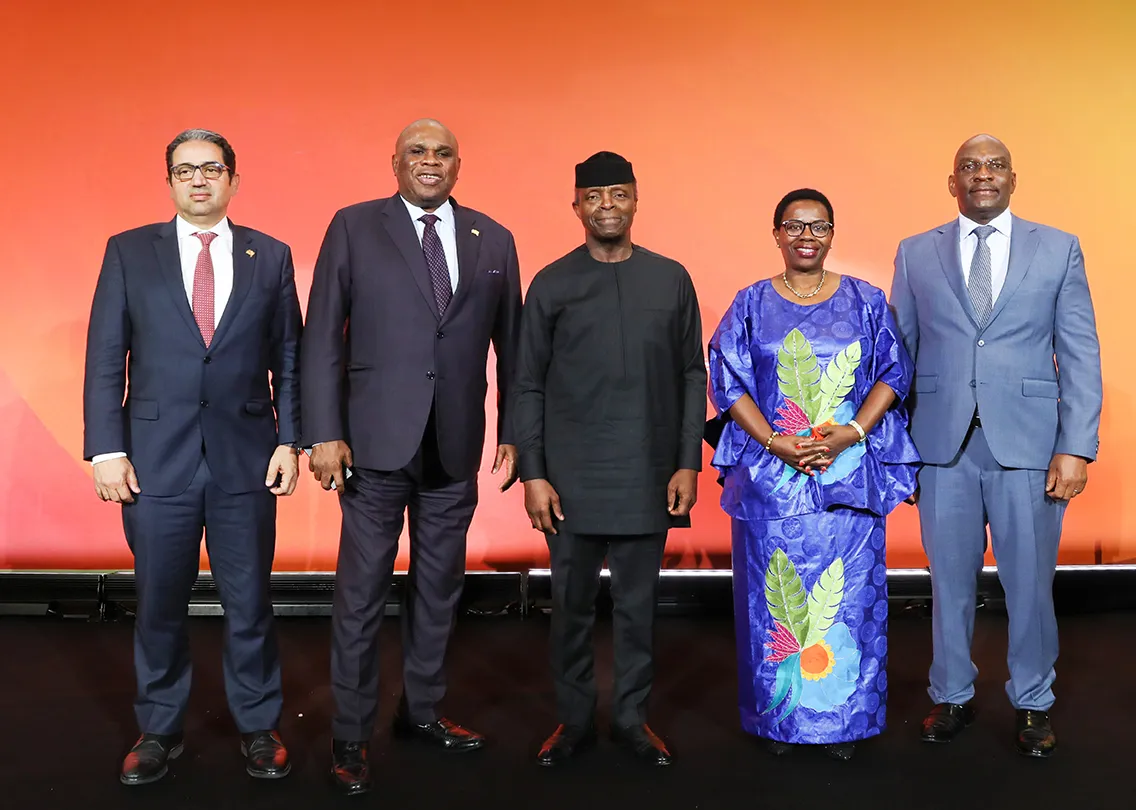Africa's Path to a Green Industrial Civilization and Economic Prosperity
Key Ideas
- Professor Oluyemi Oluleke Osinbajo advocates for Africa to lead in green industrialization through clean energy manufacturing.
- The African Continental Free Trade Area (AfCFTA) is seen as a solution to reduce carbon emissions and foster local value addition to combat climate change.
- Osinbajo highlights the economic feasibility of renewable energy solutions and the transformative potential of exporting low-carbon fuels like hydrogen and ammonia for African economies.
- The AfCFTA is positioned to drive job creation, green industrialization, and economic growth by supporting climate-positive growth across the continent.
During the eighth Babacar Ndiaye Lecture in Washington DC, Professor Oluyemi Oluleke Osinbajo emphasized Africa's potential to become a green industrial civilization through clean energy manufacturing. The lecture celebrated the legacy of Babacar Ndiaye, who established pivotal African institutions like Afreximbank. Osinbajo and Afreximbank's President, Benedict Okey Oramah, praised Ndiaye's foresight in creating institutions that have supported African countries through crises since the 1980s. They highlighted the African Continental Free Trade Area (AfCFTA) as a means to promote local value addition, reduce carbon emissions, and drive economic growth across Africa. Osinbajo addressed the challenges of climate change in Africa, stressing the continent's minimal contribution to global emissions but severe vulnerability to its effects.
Osinbajo expressed concerns over the costs of fossil fuel divestment for African countries heavily reliant on these resources. He proposed a carbon-negative approach, advocating for Africa to become a 'climate-positive' powerhouse by leveraging its renewable energy potential and exporting low-carbon fuels like hydrogen and ammonia. The AfCFTA's potential to create a green industrial civilization was a central theme, emphasizing the environmental benefits of local beneficiation and reduced shipping emissions. Recent data supporting the economic viability of renewable energy solutions and the decreasing costs of solar energy compared to traditional gas technologies were highlighted.
In conclusion, the lecture outlined how the AfCFTA, as the largest free trade area by participating countries, can drive job creation, green industrialization, and economic prosperity in Africa. By prioritizing local production, reducing trade barriers, and embracing renewable energy, Africa has the opportunity to lead in sustainable development and combat climate change effectively.
Topics
Africa
Renewable Energy
Clean Energy
Climate Change
Job Creation
Economic Growth
Trade Agreements
Green Industrialization
African Institutions
Latest News
